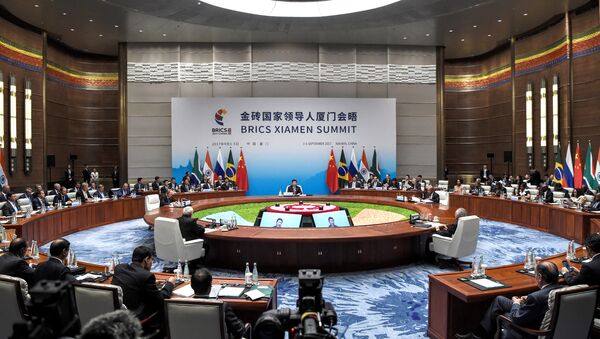Commenting on Beijing's push to expand the membership of BRICS, Russian expert Victoria Panova said that first and foremost, the focus should be placed on attracting BRICS allies rather than including more states in the organization.
"First, BRICS should establish concrete mechanisms of interaction and only then think about inviting other countries to join the group," Panova said.
Panova warned against BRICS' isolation, saying that the group should attract more allies from emerging and developing countries.
"Namely, BRICS positions itself as kind of an alternative format which is more transparent as compared with the G7, for example. That's why BRICS should be open to the non-Western world, where they ought to find allies, something that is the bottom line of China's initiative," she said.
Panova described China as a global power which is unsuccessfully trying to find regional allies which could be ready to cooperate with Beijing.
She also pointed out that South Africa will most likely concentrate on the countries of the African continent, "especially given that South Africa should position itself as a key country in Africa or as a window or door to the African continent" ahead of the country's rotational presidency in BRICS in 2018.
"In any case, I see the BRICS expansion as an unlikely scenario," Panova pointed out.
What's next for BRICS? Check out our 5 takeaways from speeches by President #XiJinping at Xiamen #BRICS2017 summit! #XinhuaSpecial pic.twitter.com/ZLhCRPS2wR
— China Xinhua News (@XHNews) 5 сентября 2017 г.
Founded in 2006, BRICS is an association of five major emerging national economies, including Brazil, Russia, India, China and South Africa, which represents almost three billion people and about 20 percent of the world's GDP.
"We hope to establish broad partnerships and expand our circle of friends so as to turn it [BRICS] into the most effective platform for South-South cooperation," Yi said. He declined to elaborate on what countries could be included in BRICS+.




